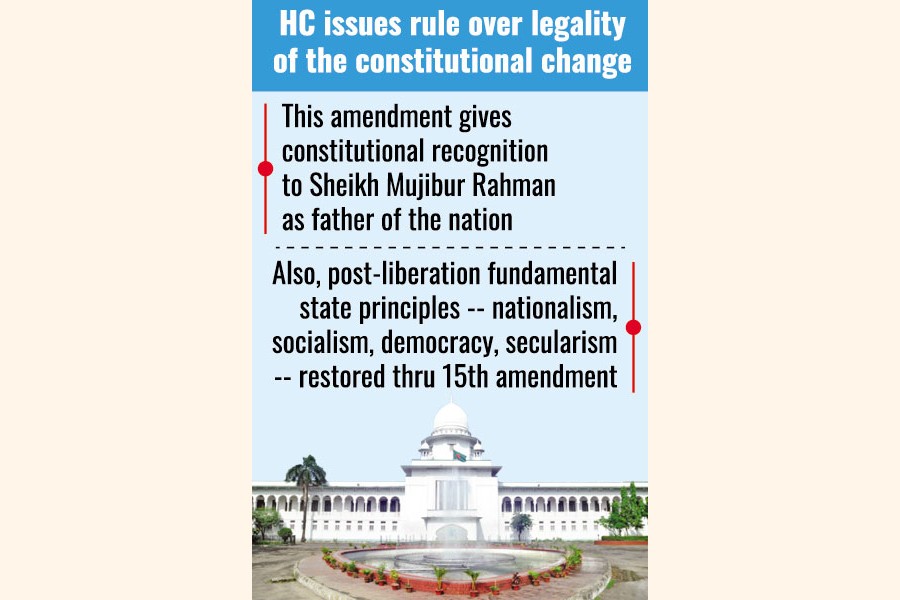
Published :
Updated :

Now the High Court questions the legality of the fifteenth constitutional amendment that scrapped the caretaker-government system and set off prolonged political tangles lasting until an unceremonious regime change.
An HC bench Sunday issued a rule asking relevant bodies of the government to explain why the fifteenth amendment "shall not be declared ultra vires the constitution".
The court also wants to know in the rule "why the previous actions and deeds done or taken in any manner in pursuance of the amendment shall not be condoned as transactions past and closed".
The Law Secretary and the Jatiya Sangsad Secretary have been asked to comply with the rule issued on a writ petition.
The High Court bench of Justice Naima Haider and Justice Sashanka Shekhar Sarkar passed the orders after hearing the writ petition filed challenging the legality of the fifteenth amendment, now that the regime under which the caretaker system was abolished has been unseated through an uprising.
A galaxy of civil-society campaigners -- Dr Badiul Alam Majumder, Dr Tofail Ahmed, M Hafizuddin Khan, Md Jobirul Hoque Bhuiyan and Zahrah Rahman -- filed the petition.
Lawyers Dr Sharif Bhuiyan and Reduanul Karim appeared in the court hearing on behalf of the petitioners, while Attorney-General Md Asaduzzaman represented the state.
Parliament passed the 15th Constitution Amendment on June 30 in 2011 and the President approved the bill on July 3 that year. The then Awami League government scrapped the Caretaker Government system through the amendment and gave constitutional recognition to Sheikh Mujibur Rahman as father of the nation.
The amendment also ramped up reserved women seats in parliament from 45 to 50. It also restored secularism and freedom of religion and incorporated nationalism, socialism, democracy and secularism as the fundamental principles of state policy.
Lawyer Sharif Bhuiyan said, "According to the Article 142 of the Constitution a referendum is a must if you bring changes in several articles of the Constitution at once. Many articles of the constitution were changed through the fifteenth amendment, but no referendum was held. So, the step was contrary to the constitution as they didn't hold any referendum."
He also argued the Appellate Division of the Supreme Court in its verdict delivered in the case on the 13th amendment had said that the subsequent two parliament elections (tenth and eleventh) could be held under caretaker government.
"However, the government scrapped the 13th amendment defying that observation of the apex court. Accordingly, the 15th amendment is also contrary to the apex court order," the lawyer said.
He further said they also prayed to the court to stay the operation of the 15th amendment. However, the court didn't pass such order as the initiative may create a constitutional vacuum.
bikashju@gmail.com


 For all latest news, follow The Financial Express Google News channel.
For all latest news, follow The Financial Express Google News channel.